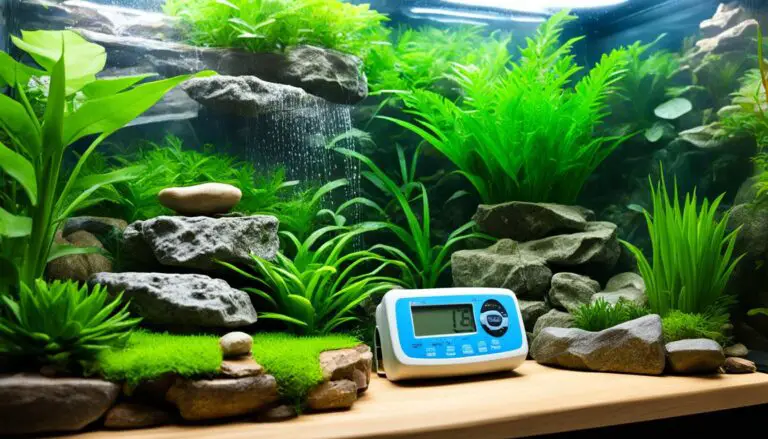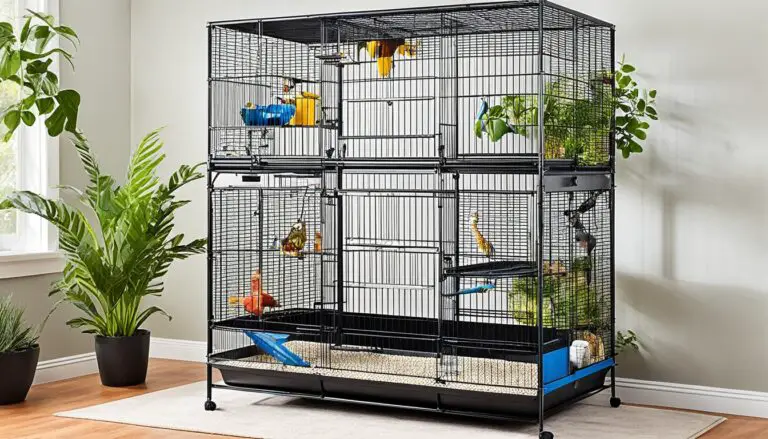The Truth About Keeping an Exotic Pet in an Apartment
Exotic pets are fascinating creatures that can bring joy and excitement to their owners.
From colorful birds to slithering snakes, exotic pets can make excellent companions.
However, the decision to keep an exotic pet in an apartment can be challenging. Limited space, noise restrictions, and building regulations are some of the factors that pet owners must consider.
In this article, we will uncover the truth about keeping an exotic pet in an apartment, including the benefits and challenges, as well as important considerations to ensure the well-being of both the pet and its owner.
The Benefits of Owning an Exotic Pet in an Apartment
1. They don’t require a lot of space
Unlike traditional pets such as dogs and cats, most exotic pets do not require a lot of space.
Many reptiles and small mammals can comfortably live in a terrarium or a cage, making them ideal for apartment living.
Additionally, exotic pets such as fish or birds can thrive in compact habitats such as an aquarium or a birdcage.
2. They can be low-maintenance
Exotic pets can be low-maintenance compared to traditional pets such as dogs and cats.
For example, some reptiles such as geckos or snakes require feeding only once a week or even less.
What’s more, some birds such as canaries or finches require minimal grooming.
3. They can provide unique companionship
Exotic pets can offer a unique form of companionship.
For example, some birds can learn to talk, while some reptiles can be trained to recognize their owner’s voice.
This unique bond between an owner and their exotic pet can be very rewarding.
The Challenges of Keeping an Exotic Pet in an Apartment
1. Noise Restrictions
One of the most significant challenges of keeping an exotic pet in an apartment is noise restrictions.
Some exotic pets such as birds or monkeys can be very vocal, and this can disturb the neighbors.
On top of that, some reptiles such as iguanas or turtles can create noise by scratching their enclosures.
2. Building Regulations
Another challenge of keeping an exotic pet in an apartment is building regulations.
Some buildings may have strict rules against pets, especially exotic ones.
Additionally, some exotic pets may be considered dangerous or may require a special license to own, making them difficult or even illegal to keep in an apartment.
3. Space Limitations
Although exotic pets do not require a lot of space, they still need room to move around and exercise.
This can be challenging in an apartment, especially if the pet is active or requires a lot of movement.
Furthermore, some exotic pets such as snakes may need a larger enclosure for their well-being, which may not be practical in an apartment.
Important Considerations Before Owning an Exotic Pet in an Apartment
Before bringing an exotic pet into an apartment, it’s essential to consider several factors to ensure that both the pet and the owner can live happily and safely.
1. Check Building Regulations
Before purchasing an exotic pet, it’s important to check the building regulations.
Some buildings may have strict rules against pets, while others may require a special permit to keep an exotic pet.
You absolutely have to do proper research and follow the regulations to avoid legal problems.
Also, note that insurance coverage for renters and regular homeowners may not cover liability resulting from exotic pets.
2. Consider the Noise Level
Noise level is an essential consideration when keeping an exotic pet in an apartment.
Some exotic pets, such as birds or monkeys, can be very vocal and may disturb the neighbors.
That’s why you need to choose a pet that is quiet or to train the pet to be quiet.
3. Space Requirements
Although most exotic pets don’t require a lot of space, it’s still essential to consider the space requirements.
Some exotic pets, such as snakes or monkeys, may need a larger enclosure, which may not be practical in an apartment.
It’s important to choose a pet that can comfortably live in the available space.
4. Pet Care and Maintenance
Exotic pets require specific care and maintenance, and it’s important to consider if the owner has the time, energy, and knowledge to provide the necessary care.
Proper diet, housing, and hygiene are crucial for the pet’s well-being.
Additionally, some exotic pets require specialized veterinary care, which may be expensive.
5. Safety Precautions
Some exotic pets can be dangerous, and it’s important to take proper safety precautions to ensure the safety of the owner and the neighbors.
For example, some reptiles may carry salmonella, and it’s essential to practice proper hygiene when handling them.
Moreover, some exotic pets may bite or scratch, and it’s important to handle them with care.
Conclusion
In conclusion, owning an exotic pet in an apartment requires careful consideration and planning to ensure the well-being of both the pet and the owner.
It’s important to check the building regulations, consider the noise level, space requirements, pet care and maintenance, and safety precautions.
Also, it’s crucial to choose a pet that is suitable for apartment living and to provide the necessary care and attention.
With proper research and preparation, owning an exotic pet in an apartment can be a rewarding experience for both the pet and the owner.
FAQs
1. What are the best exotic pets for apartments?
The best exotic pets for apartments are those that don’t require a lot of space and are quiet.
Some examples include reptiles such as geckos or snakes, small mammals such as hamsters or rabbits, and birds such as canaries or finches.
2. Do I need a special permit to keep an exotic pet in an apartment?
It depends on the building regulations.
Some buildings may require a special permit to keep an exotic pet, while others may prohibit pets altogether.
It’s important to check with the building management before purchasing an exotic pet.
3. How do I train my exotic pet to be quiet?
Training an exotic pet to be quiet requires patience and consistency.
It’s important to reward the pet when it’s quiet and to ignore the pet when it’s loud.
Additionally, providing enough mental and physical stimulation can prevent the pet from becoming bored and vocal.
4. How much does it cost to keep an exotic pet in an apartment?
The cost of keeping an exotic pet in an apartment varies depending on the type of pet and its needs.
The initial cost of purchasing the pet and setting up its enclosure can range from a few hundred dollars to several thousand dollars.
And don’t forget about ongoing costs such as food, supplies, and veterinary care can add up quickly.
Peter Stones is the founder of Exotic Pets Place, the leading online resource for exotic pet care information.
With over 10 years of hands-on exotic pet ownership experience, he is deeply passionate about sharing his expertise to help others properly care for their unusual pets.
When he's not writing extensively researched articles or connecting with fellow exotic pet enthusiasts worldwide, you can find Peter at home tending to his own beloved menagerie of exotic animals.

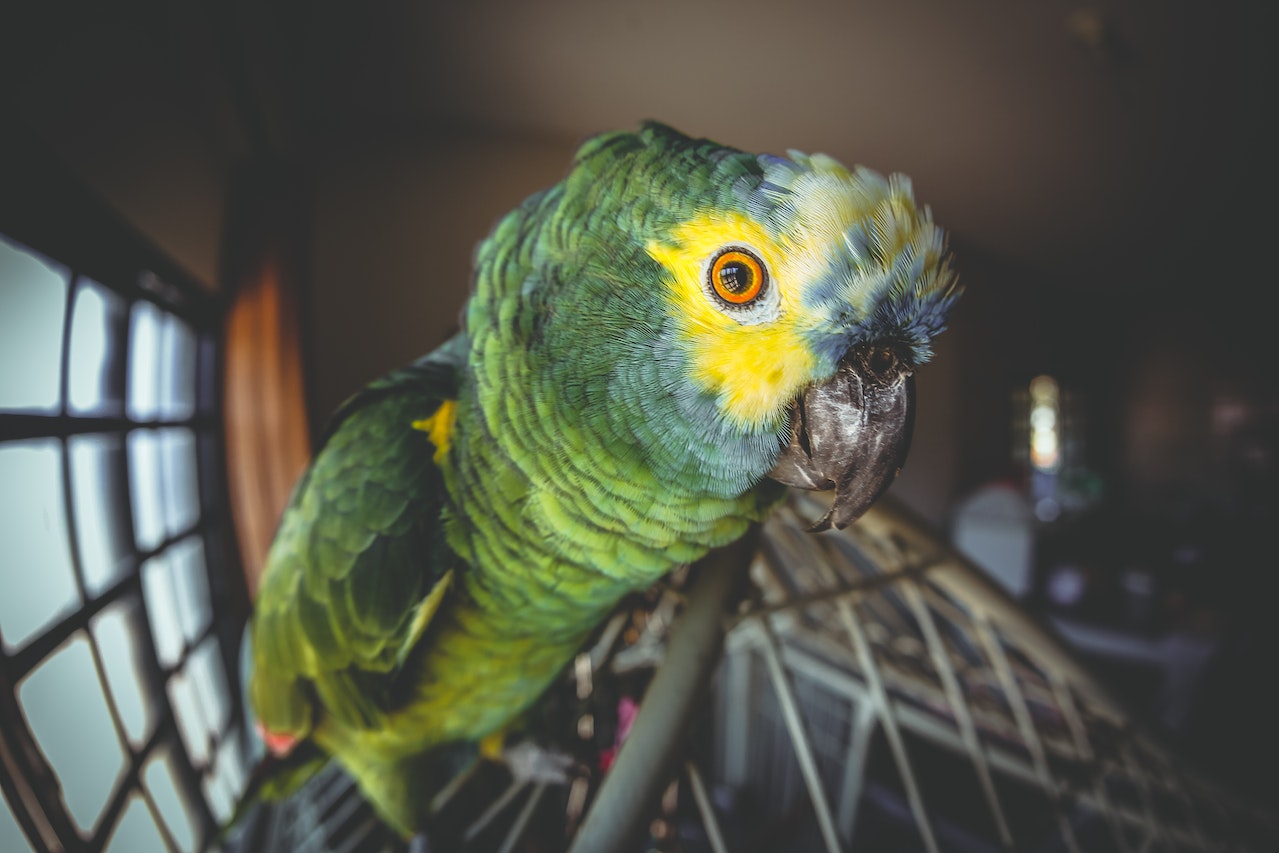
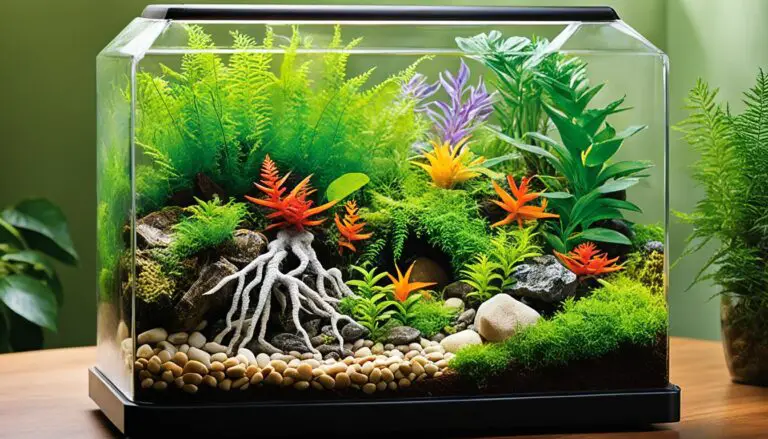
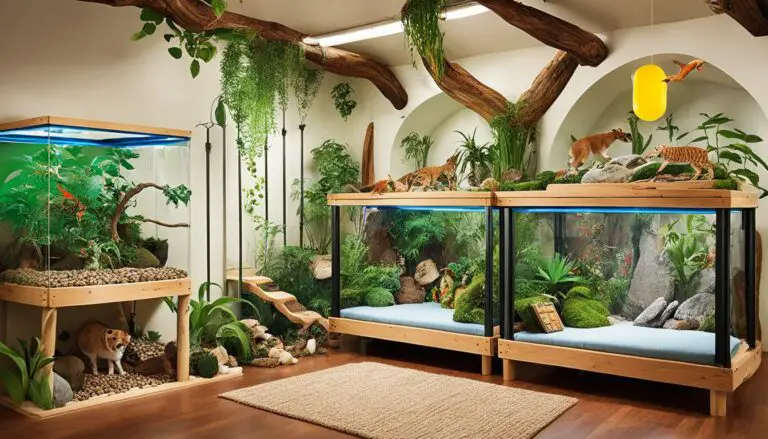
![How to Create a Safe Outdoor Space for Your Exotic Pet [Guide], wood house with a porch](https://exoticpetsplace.com/wp-content/uploads/2023/06/How-to-Create-a-Safe-Outdoor-Space-for-Your-Exotic-Pet-Guide-wood-house-with-a-porch-768x512.jpg)
